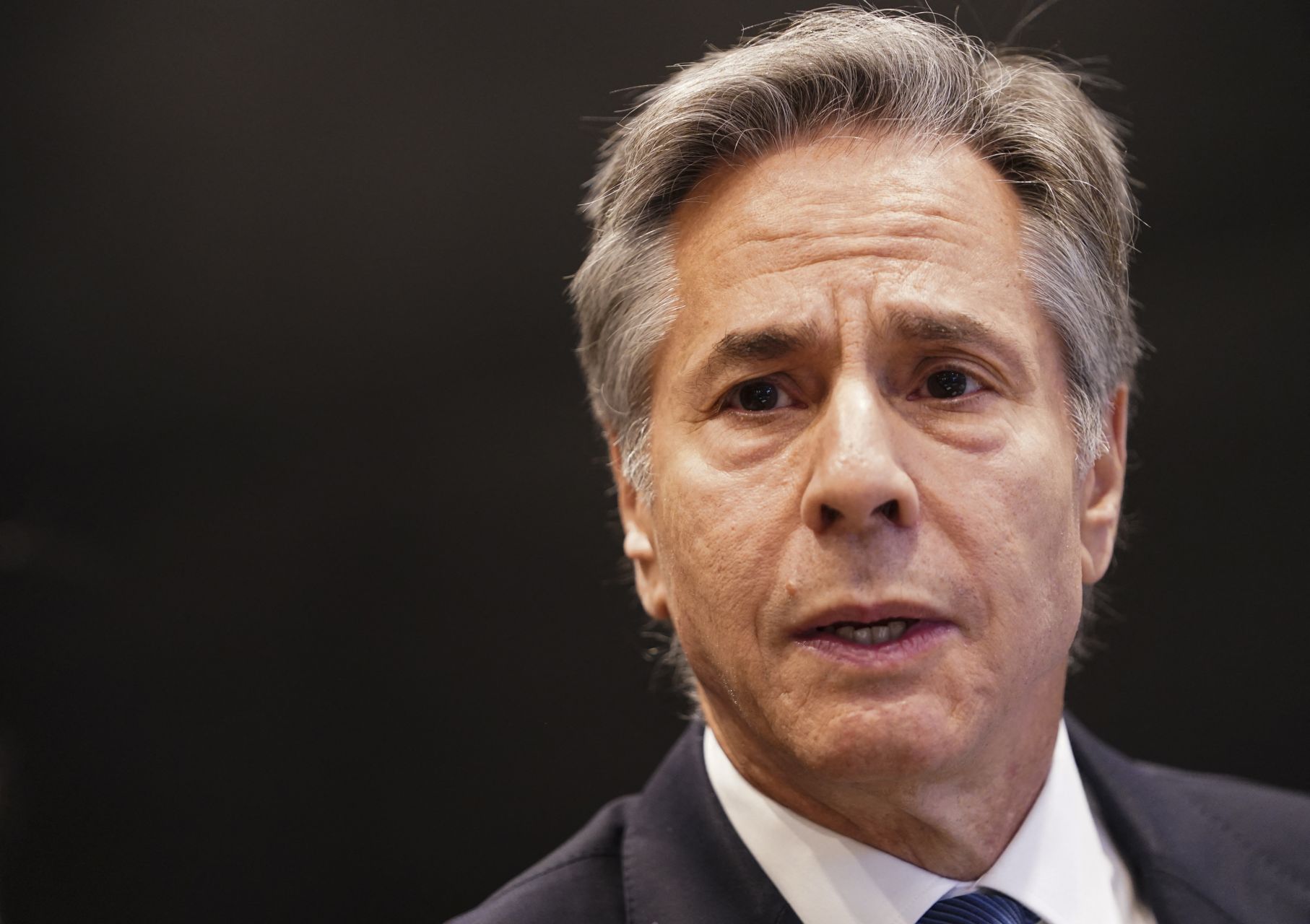- Home
- Middle East
- Blinken Ends Latest Round of Shuttle Diplomacy Without Resolution

United States Secretary of State Antony Blinken, during his visit to London, on October 25, 2024. ©Nathan Howard / POOL / AFP
US Secretary of State Antony Blinken on Friday ended his eleventh round of the Middle East shuttle diplomacy without achieving a Gaza ceasefire.
But after persistent disappointment, Blinken this time is trying a new approach that starts by figuring out what happens after the war ends.
When he last visited Israel in August, Blinken publicly said it could be the "last chance" for a US-proposed deal that would offer a temporary ceasefire and free hostages seized in the October 7, 2023 attack by Hamas.
Blinken has kept trying, announcing with key mediator Qatar on Thursday that negotiators will restart ceasefire talks.
In recent weeks, Blinken and US officials have been sparing in their use of the word "ceasefire", instead calling more generally for an end to the war and release of hostages.
His discussions have increasingly focused on a plan to govern Gaza that sidelines Hamas, the militant group which has ruled the impoverished and densely populated territory since 2007.
The goal is to offer Israel the option to declare victory and pull out on its own, but with confidence about the future, if a deal cannot be reached.
In Qatar, Blinken said he was looking to "develop a plan for what follows so that Israel can withdraw from Gaza, so that Hamas cannot reconstitute, and so that the Palestinian people can rebuild their lives and rebuild their futures under Palestinian leadership".
Throughout the trip, which ended Friday with meetings with Arab ministers in London, he said he spoke on "concrete ideas that we've been developing for security, for governance, for reconstruction in Gaza".
"This is a moment for every country to decide what role it's prepared to play and what contributions it could make in moving Gaza from war to peace."
In Israel, Blinken said the country had achieved most of its strategic aims in Gaza by degrading Hamas and last week killing the group's leader Yahya Sinwar.
'Getting worse'
In London, Jordan's Foreign Minister Ayman Safadi saluted the top US diplomat's efforts but questioned their impact on Israeli Prime Minister Benjamin Netanyahu.
The Middle East is "getting worse, unfortunately, every time we meet," Safadi said.
"Not for lack of us trying, but because we do have an Israeli government that is not listening to anybody, and that has got to stop," he said.
The US President Joe Biden, a staunch supporter of Israel during his decades in politics, has made clear that his administration, even while disagreeing with Netanyahu's right-wing government, will maintain its military support.
Biden administration officials contest charges that its diplomacy has failed.
They say it was never realistic to prevent major Israeli retaliation to the largest attack in its history and contend the situation would be far worse without US pressure on Israel, which had threatened a complete blockade to strangle Gaza.
Brian Katulis, a senior fellow at the Washington-based Middle East Institute who worked in Bill Clinton's administration, noted that US diplomacy achieved the short ceasefire and release of hostages in November.
"Quiet US diplomacy, combined with America's military actions and security cooperation, has probably forestalled a wider regional war and prevented the Israel-Iran tit-for-tat military exchanges from being worse than they might have been," he said.
"But the Biden administration is nowhere close to achieving its main goals in the region, and it's not clear that Blinken's multiple trips did anything besides demonstrate how little power and influence America has and is willing to use to shape events, rather than respond to them."
With Shaun TANDON / AFP
Read more



Comments